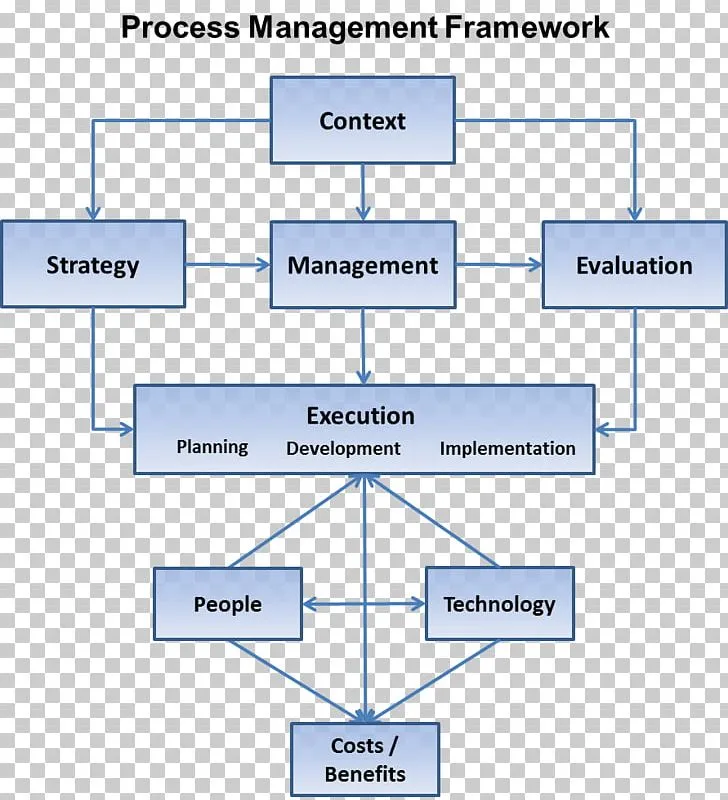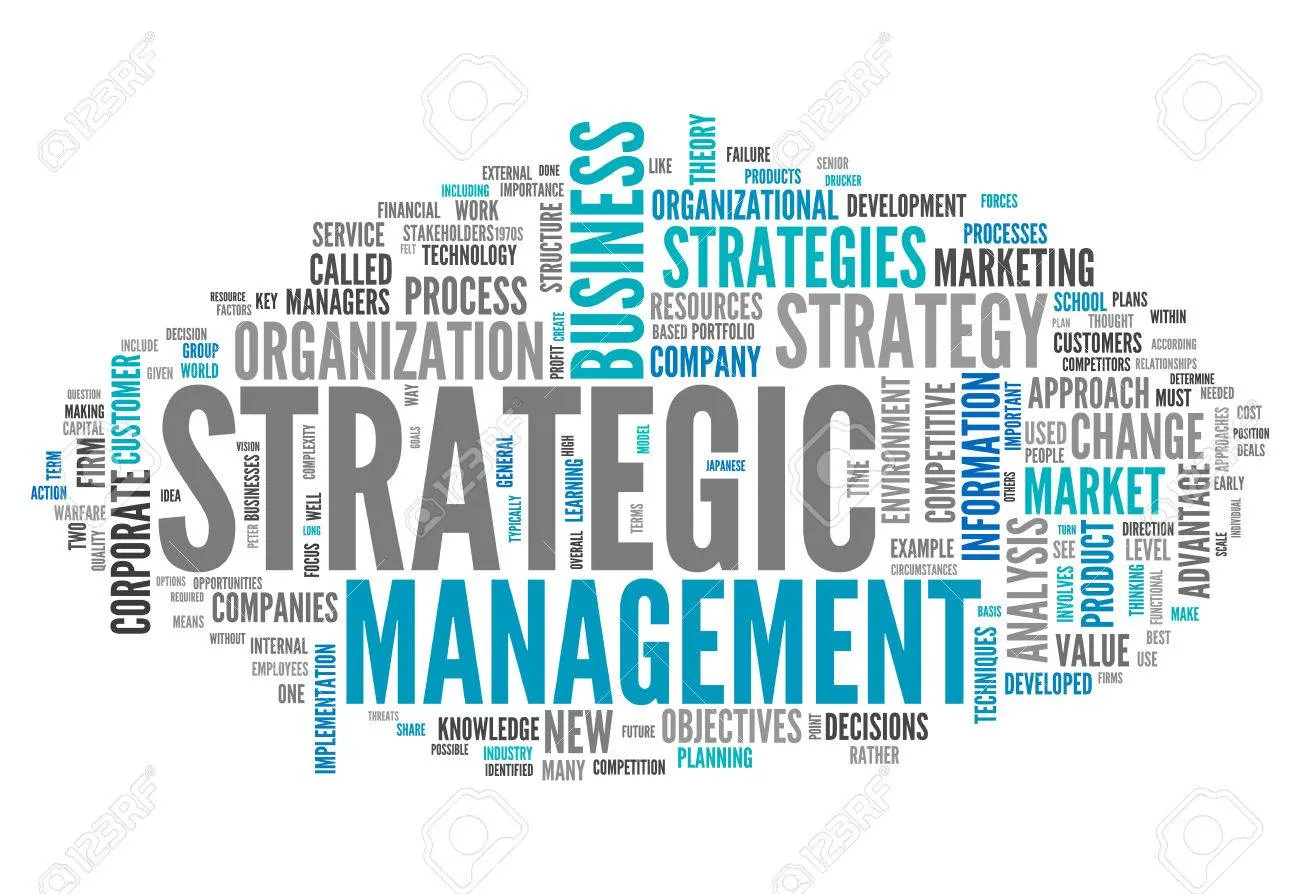Strategic management provides better guidelines to the entire organisation on the crucial point of “what is it we are trying to do and to achieve”?
It makes managers more alert to the winds of change, new opportunities and threatening developments. It also provides managers with a rationale for evaluating competingbudgetrequests for investment capital and new staff. It helps to unify the strategy-related decisions by managers across the organisation and creates a more productive management posture and counteracting tendencies for decisions to be creative and defensive.

Thus, among the entire things managers do, few affect a company’s performance more fundamentally than how well its management team charts the company’s long-term direction. This is where strategic management becomes a disposable factor.
The concept of strategyA strategy is a plan that integrates an organisation's major... More is central to understanding the process of strategic management. According to Quinn and Rogers, strategyA strategy is a plan that integrates an organisation's major... More comes from the Greek word,“strategos”meaning “generalship” and which described the role of the general in the command of the army From there, the term strategic planning evolved at about the end of World War II as an alternative course of action.
Later, this term came to mean the art of the general, i.e. the psychological and behavioural skills with which he performs his role. By the time of Alexander, it referred to the skill or employment of forces to overcome opposition and to create a unified system of global governance. As time went by, it turned out to mean managerial skills in terms of administration, leadership, oration and powerPower in physics is the rate of doing work; measured in watt... More.
The end of theCold Warbrought about the globalisation era, gradually turning the world into a global village and a single market where the tenets of strategic planning as in “strategos” or “the commanding army” could not withstand the tidal waves of stiff competition of the managerial skills. This situation paved the way for and/or gave rise to strategic management. Thus, the concept of strategyA strategy is a plan that integrates an organisation's major... More is central to strategic management.
Table of Contents
Definitions of Strategy
Since the word “Strategy” is central to strategic management it is quite in tune and proper to get the meaning of strategyA strategy is a plan that integrates an organisation's major... More clear before advancing to strategic management. Certainly, strategyA strategy is a plan that integrates an organisation's major... More is not an exact science and organisations can apply their individual rules. The best strategyA strategy is a plan that integrates an organisation's major... More does not emerge from the cookbook approach and there are no formulae for calculating the strategyA strategy is a plan that integrates an organisation's major... More. StrategyA strategy is a plan that integrates an organisation's major... More is defined in many ways based on the views and experiences of the authors. The definitions include:
Ansoff (1965) defines strategyA strategy is a plan that integrates an organisation's major... More as a rule for making decisions under conditions of partial ignorance whereas policy is a contingent decision. Business strategyA strategy is a plan that integrates an organisation's major... More is the broad collection of decisions, rules and guidelines that define the business scope and growth direction.
Steiner and Miner (1977), define a strategyA strategy is a plan that integrates an organisation's major... More to mean the formulation of basicorganisation missions, purposes and objectives, policies and programmestrategiesto achieve them, and the methods needed to ensure that strategies are implemented to achieve the organisation’s end.
Mintzberg (1979) refers to strategyA strategy is a plan that integrates an organisation's major... More as the interpretation of the environment and the development of consistent patterns in streams of organisational decisions. On the other hand, Porter (1980) sees strategyA strategy is a plan that integrates an organisation's major... More as a broad-based formula for how a business is going to compete, what its goals should be and what policies will be needed to carry out those goals. The essence of formulating a competitive strategyA strategy is a plan that integrates an organisation's major... More is relating a company to its environment. Also (1980), Quinns describes strategic decisions as “those that determine the overall direction of an enterprise and its ultimate viability in light of the predictable and unpredictable and the unknowable changes that may occur in its most important surroundings environment”.
However, Hax (1987) adequately relates strategyA strategy is a plan that integrates an organisation's major... More to strategic management when he states “the essence of strategyA strategy is a plan that integrates an organisation's major... More is for a firm to achieve a long term sustainable advantage over its competitors in every business in which it participates”. A firm”s strategic management has, as its ultimate objective, the development of its corporate values, managerial capabilities, organisational responsibilities, and operational decision making, at all hierarchical levels and across all business and functional lines of authority.
From these definitions, one can, like Quinn and Mintzberg (1991) state that there is no single universally accepted definition of strategyA strategy is a plan that integrates an organisation's major... More and there is no one best way to create a strategyA strategy is a plan that integrates an organisation's major... More, nor is there anyone best form of organisation.
Strategic Management

Strategic management has been defined in many ways by different authors and authorities. There is no absolute consensus on the definition of strategic management. The following are some of the definitions:
- Strategic management is that set of managerial decisions and actions that determines the long-run performance of a corporation. It includes environmental scanning, strategyA strategy is a plan that integrates an organisation's major... More formulation, strategyA strategy is a plan that integrates an organisation's major... More implementation and evaluation.
- Strategic management is a stream of decisions and actions which leads to the development of an effective strategyA strategy is a plan that integrates an organisation's major... More or strategies to help achieve corporate objectives (Gleck and Juanxh, 1984).
iii. Strategic management is concerned with the overall long-range
direction of organizations and consequently provides a framework for operational management (Greenley, 1989).
- Strategic management is a systematic approach to a major and
increasing the important responsibility of general management to position and relate the firm to its environment in a way that will assure its continued success and make it secure from surprises (Ansoff, 1990).
- Strategic management is concerned with deciding on strategyA strategy is a plan that integrates an organisation's major... More and planning how that strategyA strategy is a plan that integrates an organisation's major... More is to be put into effect via strategic analysis, strategic choice and strategic implementation (Johnson and Scholes, 1993).
- Strategic management is the decision process that aligns the organisation’s internal capability with the opportunities and threats it faces in its environment (Rowe et al, 1994).
From all these, strategic management can be seen as the art or science of formulating, implementing and evaluating cross-functional decisions that enable an organisation to achieve its objectives. Other concepts in management that are used sometimes or interchangeably with strategic management are strategic planning, business policy and long-range planning.
Strategic management techniques can be viewed in two major ways. The first is the bottom-up or collaborative processes. Using this approach, the employees initiate a proposal which they subsequently submit to their managers or their superiors, who put the idea further up in the establishment. These proposals may be assessed based on financial criteria and other concrete economic terms such as cost-benefit evaluation and returns on investment. The second is the top-down approach which is more common than any other method. Here, the chief executive officer and his team decide on the overall direction in which the organisation should go.
Although there are diverse opinions on strategic management, it has to do with deriving and describing the strategyA strategy is a plan that integrates an organisation's major... More, which is common to all organisations whether large, medium, small, public, private, profit or non-profit making organisations. Strategic management, therefore, encompasses the entire enterprise. It looks beyond the mere day-to-day operations of the business and focuses on the long-term prospects and development of the establishment.
In a small business, the single owner may not formalise all of these and may do everything including strategic management. In a large business such as a multinational, strategic management is handled at the senior management level. Also in large establishments, there may be a number of interdependent areas of strategy, usually referred to as corporate strategyA strategy is a plan that integrates an organisation's major... More. This differs a bit from the business strategyA strategy is a plan that integrates an organisation's major... More which deals mainly with a particular strategic business unit (SBU).
From the analysis so far, an organisation’s strategyA strategy is a plan that integrates an organisation's major... More must be appropriate for its resources, environmental circumstances, the core objectives or goals. This involves identifying the organisation’s strategic advantage and matching items to the organisation’s business environment.
So we integrate on organisation’s goals, policies, missions, profiles and actions effectively and efficiently in order to achieve the organisation’s objectives. Strategic management aims at creating the future as well as reacting to the changing times. This includes creative leadership, entrepreneurial and innovative dimensions. Strategic management in the 21st century must innovation and good leadership
Conclusion
The concepts of strategyA strategy is a plan that integrates an organisation's major... More and strategic management are applied in business as the pattern or plan that integrates an organisation’s goals, policies and actions together to attain the desired objectives. There is no single model or theory that can incorporate all the factors that influence major business decisions or all the possible combinations of factors that any business may face.
